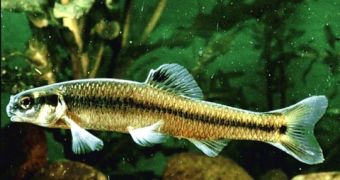This September, the journal BioScience will see the publication of a new report stating that, when compared to terrestrial animals, the freshwater fish species in North America are becoming extinct much faster and in far greater numbers.
According to the environmental specialists who investigated this peculiar phenomena, the fact that North America is losing its indigenous fish species at such a fast pace has to do both with the loss of natural habitat, and with humans' introducing foreign species in the natural ecosystems in this part of the world.
Thus, releasing non-native animal species in various wildlife areas forces indigenous ones to engage in competitions for food and shelter, and most of the times they seem to come out losing.
Eurek Alert reports that, according to this research, as many as 57 North American fish species and subspecies have become extinct in a relatively short period of time: since 1898 and up until present days.
Given the fact that these lands were presumed to be home to about 1213 fish species, this loss makes for about 3.2% of North America's entire fish population, argues Noel M. Burkhead of the US Geological Survey, who was in charge of conducting this study.
The same source informs us that, although fish species in this part of the world began to disappear as early as 1989, the rate at which said animals started falling off the biodiversity map after the year 1950 more than exceeds the loss of freshwater fish species which had been taking place until this threshold.
However, there is one good piece of news: over the past decade, things have improved a bit, meaning that fewer fish species were reported to have become extinct.
It is our opinion that although our planet's biodiversity did indeed suffer tremendous losses over the past decades as a result of various human activities, our remaining plant and animal species can be kept from sharing a similar fate by pushing for strict and efficient conservation projects.

 14 DAY TRIAL //
14 DAY TRIAL //